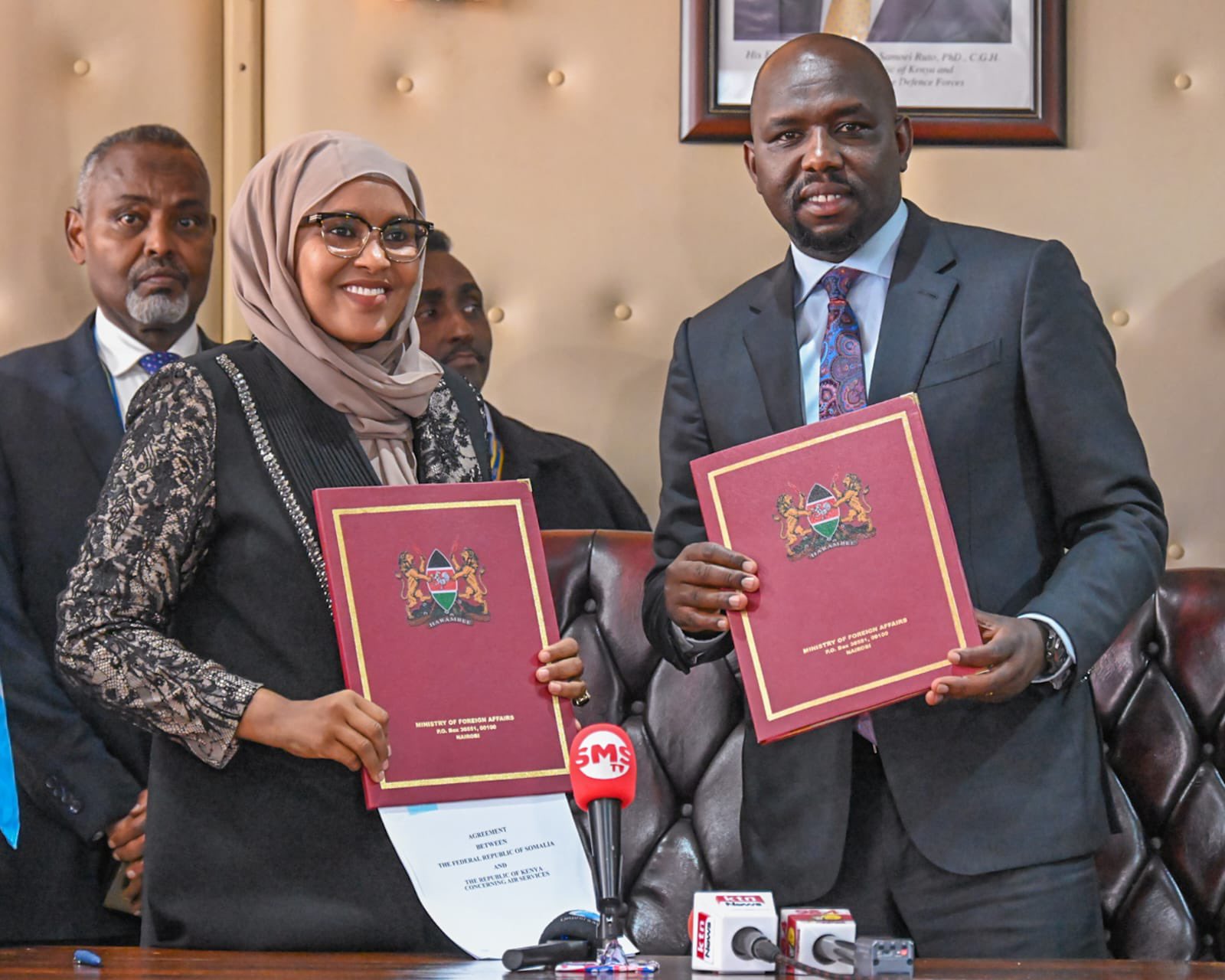Two East African countries Kenya and Somalia On Wednesday, August 9, formally entered into a Bilateral Air Services Agreement (BASA).
While giving his remarks, Roads and Transport Cabinet Secretary Kipchumba Murkomen, confirmed that both countries had successfully reached an agreement after conducting a comprehensive review of the agreement in March.
“The delegations of the Federal Republic of Somalia and the Republic of Kenya, met in Nairobi on the 20th and 21st day of March 2023 to review the text of the Bilateral Air Services Agreement (BASA) between the two Contracting Parties.
Read Also: Indigo Air Launches Mumbai-Nairobi Flights
“The delegations finalised and agreed to initial the text of the new Air Services Agreement, which we signed this afternoon at Transcom House, Nairobi,” stated Murkomen.
Murkomen disclosed that he and his Somali counterpart Fardowsa Osman Egal, jointly signed the agreement, which aims to harmonise air services between the two nations that had experienced previous conflicts.
Key Pillars of Kenya and Somalia Deal
Murkomen added that the agreement between Kenya and Somalia rests on four main pillars; Traffic rights, frequency and capacity, code-share and the Technical Cooperation Agreement (TCA).
Regarding Traffic Rights, Murkomen said that the airlines selected by both Contracting Parties will be permitted to utilise 3rd and 4th traffic rights. The utilisation of 5th freedom traffic rights will be contingent upon the Aeronautical Authorities’ approval upon submission of a formal request.”
He further highlighted that concerning Frequency and Capacity, the airlines from each party will conduct up to seven weekly passenger flight frequencies on designated routes as outlined in the attached route schedule of the ASA.
Additionally, for airlines operating cargo flights, there are no restrictions on the number of frequencies they may operate.
Also Read: Air France – KLM Opens African Office in Nairobi in Expansion Move
Similarly, concerning code-sharing, the designated airlines, both Contracting Parties have the opportunity to establish codeshare agreements with any airline, including those from third countries, as long as the third-country airline possesses the necessary traffic rights.
Regarding the Technical Cooperation Agreement (TCA), it mandates that the civil aviation authorities of both parties collaborate to advance mutual cooperation in various aspects of civil aviation.
This encompasses capacity enhancement, personnel training, and the exchange of experiences.


